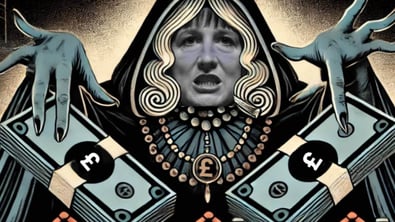The UK House Price Index has revealed an 8.3% increase in house price growth in July 2022.
The report by property specialists Zoopla, also backed the Bank of England’s view that rising interest rates and mortgage rates will not cause a property price crash.
The report provides good news for current property investors – but it is important that you stay on top of the latest developments in the market.
This blog post explains.
What is the UK House Price Index?
The UK House Price Index (UK HPI) captures changes in the values of residential properties. This is collected on residential housing transactions – whether these are made for cash or with a mortgage.
It was designated by the Office for Statistics Regulation as a National Statistic in 2018. This ensures it meets the highest standards of trustworthiness, quality and value, compliant with the Code of Practice.
The UK HPI is a joint production by HM Land Registry, Land and Property Services Northern Ireland, Office for National Statistic and Registers of Scotland.
What does the UK House Price Index for July show?
The South West and Wales are the best performing regions, with annual house price growth at 10.9%.
As cities go, Nottingham has the highest annual house price growth at 10.9%.
Strong demand and healthy volumes of new sales agreed in the first half of the year continue to support the headline rate of growth.
New sales agreed remain in line with last year.
Stock levels have started to rebuild from a low base, which has boosted the choice for buyers. The average estate agent has 14 homes for sale, up from a low of less than 12 in the spring.
Buyer demand is registering a ‘summer slowdown’, which is experienced in the market most summers. Buyer interest for the time of year is above the 2017-2022 average. Demand in London is also above the five-year average.
What will the cost of living crisis mean for the housing market?
The sales market is weakening slowly, as a result of the cost of living, rising interests and a drop in consumer confidence.
The high inflation and the rising cost of living are hitting those on lower incomes first and will take longer to impact higher income households.
The latest spending survey data show that all households have been adjusted spending patterns and cutting back on non-essential areas of spend. Those on higher incomes have more room for manoeuvre.
What will the impact of mortgage rates have on the market?
Home buyers with mortgages tend to be in higher income bands, compared to lower-income households who are more likely to rent or own their home outright.
Those on lower incomes spend a greater proportion of their earnings on essentials, including food and energy costs. Prices in these areas have risen the most, and therefore they’re feeling the cost squeeze more acutely.
The energy prices are expected to jump again in the autumn, with the rising cost of living felt across all income bonds. The report expects that this will increasingly impact household decisions, including home moves.
What other factors are impacting the housing market in 2022?
The demand for homes continues to be stimulated by working from home and a growth in retirement.
The higher mortgage rates (which have more than doubled in the last few months) have yet to fully impact market activity. While those buying homes with a mortgage may be on higher incomes, the jump in mortgage rates for new buyers will add to the cost of living increases. This looks set to impact sales market activity in Q4 and 2023.
Outright owners account for 1 in 4 purchases. The rising costs of living are likely to be increasing the proportion of households considering downsizing to help reduce running costs or extract equity from their home.
The market is going through a period where many people are re-evaluating their homes, supporting to overall sales volume.
Mortgage rates began the year at less than 2%. Now they are 3.5% and is set to reach 4% during the autumn. Over recent years, people have become used to very low mortgage rates and any reversal is likely to have an impact on demand, especially when combined with cost of living pressures.
How will the current housing market affect first time buyers?
The higher mortgage rates increase the monthly cost of repayments for all new home buyers and first-time buyers are the most sensitive group. Those looking to buy a home would use more debt and therefore are extending the size of their current mortgage. The impact will be less for those downtrading or moving to a similar-value home with the mortgage carried over at the same rate.
Higher mortgage rates increase the monthly repayments for first-time buyers. There is therefore a need for a greater household income to meet the increased costs. Moving from a 2% mortgage rate to 4% means the average first-time buyer will need an extra £12,250 in income compared to when the rates were lower.
However, compared to the income needed to rent, the income needed to buy at a 4% mortgage rate would remain lower, or on a par with renting, in all areas outside of the south of England. These are affordable markets where first-time buyers have tendency to buy larger, higher-value homes as they have the buying power to enable this.
The report states: “The lack of a material over valuation in UK home values means mortgage rates of up to 4% are not, on their own, sufficient to result in UK-wide price falls.”
What is the consequence of the current house market conditions?
The higher the income needed to buy a home, the more households are priced out of the market. This reduced the demand for houses.
The impact of rising mortgage rates will be felt more acutely in high-value markets in southern England where affordability is already a drag on market activity.
First-time buyers can respond to higher borrowing costs by using a bigger deposit to reduce the size of the mortgage, buying cheaper homes or stepping back from the market altogether. In order to fully offset this increase in mortgage rates first-time buyers would need to almost double the size of the average deposit.
Can the property market whether the cycle?
The property market is in a much better place to weather the current economic climate than during previous cycles.
A look back at history shows that sudden changes in levels of spending on housing that are most closely linked to changes in house price inflation and sales volume.
The impact of the recession on consumers mean that they may need to rapidly adjust what they spend in response to unemployment or higher mortgage rates.
A high proportion of today’s mortgages are on fixed-rate loans and are stress-tested to see if they can afford a rate of up to 7%. This has created resilience in the market that will limit the downside for price.
The current squeeze on incomes and living standards for UK households will filter through into housing market activity and house price growth in 2023. The primary risk remains in further increases in the base rate in order to control inflation. This has a direct impact on the mortgage rate. The higher the rate moves above 4%, the greater the impact on prices and sales volumes.
What are my next steps?
To read the full House Price Index Report click here.
The property market is continuing to present opportunities for property investors.
Touchstone Education has a wide range of property investment courses open to all interests, levels and experiences. Wealth Through Property is the ultimate 2-day property course, which guides students in the wide range of income streams available in the market and how to get involved and take property portfolios to the next level.
Access your free Wealth Through Property e-book to start your property journey here.
To find out more information call our team on 01302 897131 or email office@touchstoneeducation.co.uk.












